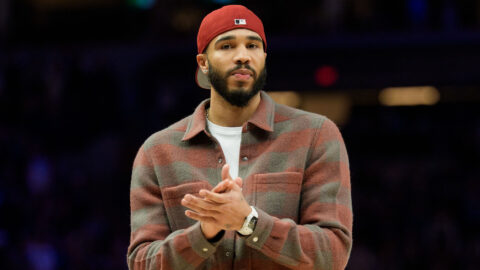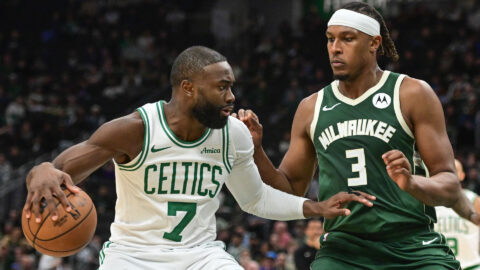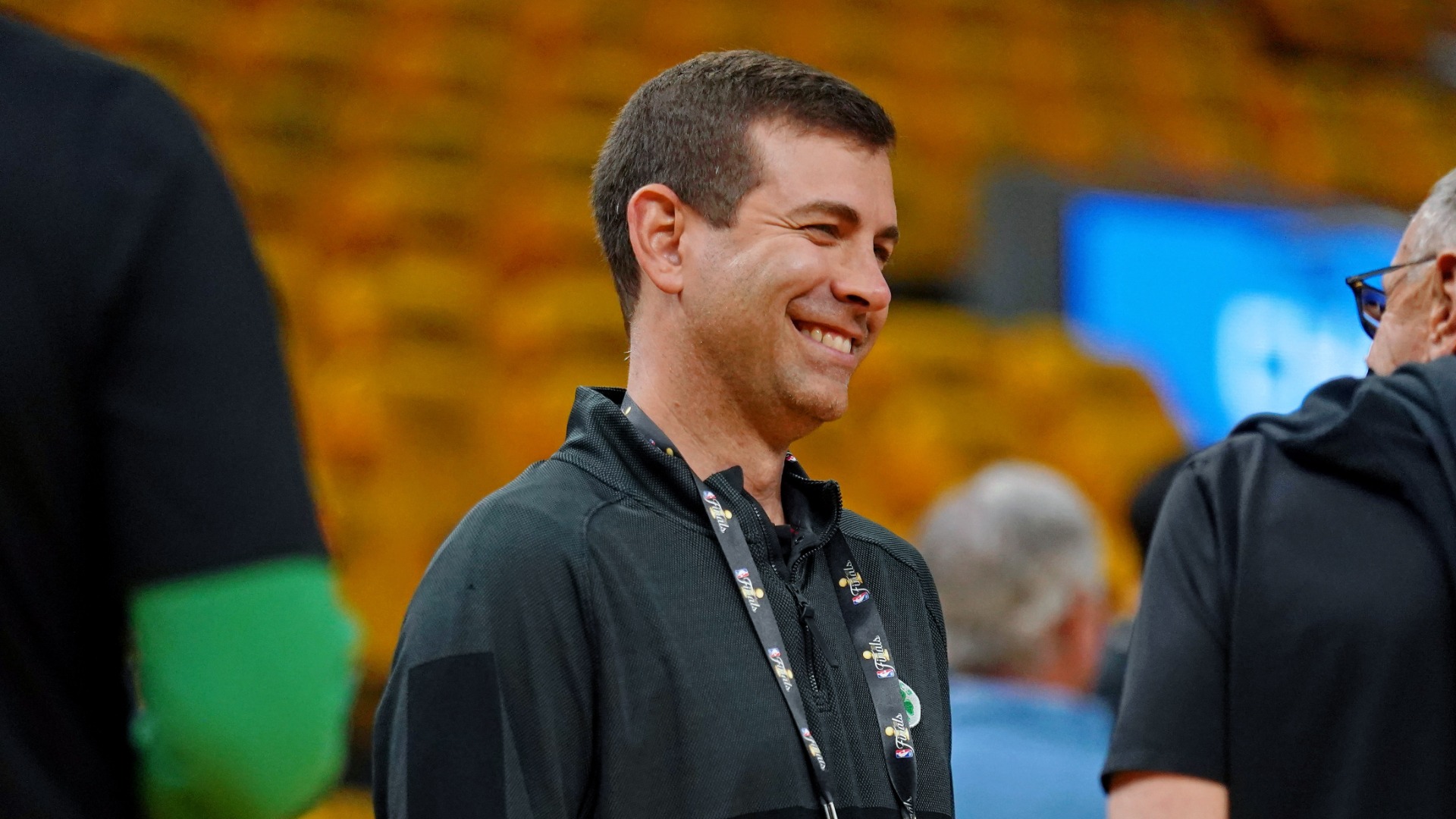Randy Moss retired on Monday (for the time being, at least), bringing an end to a career that absolutely, without question should one day earn the West Virginia native a bust in Canton. That career included six outstanding seasons in Minnesota (and one so-so season), an impressive year in Oakland, and a couple of high-caliber seasons in New England.
He was no doubt great, but he also might be responsible for the end of the Patriots' dynasty.
Using the old breakup jargon of "its not me, it's you," it had more to do with the Patriots than it did with Moss. The Patriots traded a measly fourth-round draft pick to acquire one of the game's best receivers active at the time. What they got was one of the best ever. Together with Tom Brady, he set records and was one of the biggest reasons why the Patriots went 16-0 in 2007. He caught the touchdown pass that should have won the Super Bowl that season. He was a leader the following year with the unproven Matt Cassel under center, and he tied for the NFL lead in receiving touchdowns in 2009. He was indisputably outstanding in his first three years in New England.
So how could anyone possibly make the claim that he ruined the Patriots' dynasty? That answer has more to do with philosophy than it does performance.
Back when the Patriots were winning Super Bowls every year or so, they did it with defense — everyone knows that. "The Greatest Show on Turf" was negated in Super Bowl XXXVI with hard-hitting defensive backs who punished the St. Louis receiving corps from the first snap of the game, blitzing linebackers who did this to All-Pro quarterbacks and an undersized man named Tedy Bruschi who displayed the perfect form tackle on the most lethal running back in the league. The vaunted Rams offense was stymied by the Patriots, a team that played a more bruising, physical game.
Brady, for all his heroics on the final drive, finished the game just 16-for-27 for 145 yards and one touchdown.
In the Super Bowl seasons that followed, it was Peyton Manning and the Colts who had the better team on paper, and it was the Patriots who always won. Manning sure was dangerous when he was at home, on artificial turf, inside that dome, but when he visited New England in January, he was a fish out of water.
The Patriots just kept winning. They didn't always have the fastest and tallest receiver in the league or the most powerful running back or the quarterback with the best statistics, but the Lombardi Trophies kept coming, and that's all anyone cared about in Foxboro.
But as the saying goes, nothing gold can stay. Valuable role players on championship teams got paid elsewhere like franchise players. Bill Polian lobbied for rule changes that worked to neutralize the physical play on receivers that led to so many Patriot victories over Indianapolis. Guys who were happy campers upon first arriving in Foxboro became problems in the locker room (looking at you, Corey Dillon).
There were a lot of reasons why the Patriots stopped winning Super Bowls after February of 2005, but the condensed explanation is this: It's impossible to win every year.
It's impossible to win three out of four years, really, but the Patriots established their franchise as the outlier, the underdog who never succumbed to outside pressure and won on its own terms. Yet, when faced with adversity in 2005 and '06, the Patriots opted to conform rather than rebel, and it started with a playing surface.
In the dynasty years, some of the most iconic, lasting images involved the elements. There was Bruschi in the snow, Peyton throwing four playoff interceptions on a raw January day with flurries in the air, the unforgettable Snow Bowl against the Raiders, the below-zero temperatures for the playoff game against Tennessee. Unpredictable weather is part of the fabric of New England, and the ability to adapt to it always set the Patriots apart from their opponent.
Yet in 2006, after a muddy loss to the Jets, the Patriots did the unthinkable. They ripped up the Gillette Stadium grass and laid down artificial turf. A new era was born.
It may seem like a minor change, sure, but since the artificial surface was installed, you haven't seen so much as a speck of dirt on a Patriots jersey at home. For a team that for years was the grittier, harder-working unit in almost every game it played, such a change is far from insignificant.
All of which brings us to Moss. The Patriots' addition of Moss in '07 brought for the very first time an elite wide receiver for Brady to work with. Needless to say, with 23 touchdown connections between them, it worked out immediately.
Yet with that high-flying offense, the Patriots changed significantly. The defense faced much less pressure, as Brady, Moss and Co. often opened up two-touchdown leads in the opening minutes. Rather than hand the ball to a big body like Antowain Smith to wear down opposing team's defenses, the Patriots ran a flag-football-like offense, with five wide and Brady in the shotgun. It worked, it was fun to watch, and it damn near won them a fourth Super Bowl, but in the very end of that fateful season, it proved costly.
What had to have hurt the Patriots and Belichick most about losing Super Bowl XLII is that they were beaten at their own game. The Giants thrived on the experts' almost unanimously picking the Pats to win. They came out hungrier, stronger and more aggressive. They looked the bull straight in the eyes and decided to stop it, rather than flee in fear. In other words, they played exactly like the 2001 Patriots did against the Rams.
The Giants dominated the line of scrimmage, hurried, pressured and hit the opposing All-Pro quarterback all night long and capitalized on opportunities. Sure, they needed a miracle catch from a nobody receiver who was only barely on the team, but the '01 Pats needed even more miracles to complete that playoff run.
The change was evident in the previous meeting between the Giants and Patriots, when New England capped off its perfect regular season. Statistical records used to be mocked in New England, where folks would prefer Peyton Manning to own every record, so long as Brady had all the championships. Yet, on Dec. 29, 2007, there was Brady forcing the ball to Moss time and time again. He did it because he wanted to set a record with 50 touchdowns, but he wanted Moss to set a record of his own with 23 touchdown receptions.
Brady got his record, and Moss got his, and both were celebrated in New England. Neither really mattered.
After the devastating Super Bowl loss, it's become harder and harder for the Patriots to once again win in February — or even make it to February. The Bruschis, Harrisons, Seymours and Vrabels, for various reasons, departed, and the identity of the defense — the defense that used to be responsible for championships — had essentially vanished.
Belichick and the Patriots faced a crossroads in 2006, and they made a decision. Lay down the turf, bring in Moss and Wes Welker and try to outscore every opponent every week. With the way the NFL was changing, they thought it to be the best option. It may well have been, as the team with the league's best defense has won the Super Bowl just once since '06 (Steelers, 2008), but it nevertheless represented an irreversible change in philosophy.
Moss' career will be remembered for many reasons, and his three-plus seasons with the Patriots are no different. They were fun times, and they nearly brought the greatest team in football history to New England, but years from now when Brady and Belichick are retired, his arrival in New England may be seen as the day the dynasty identity died.



